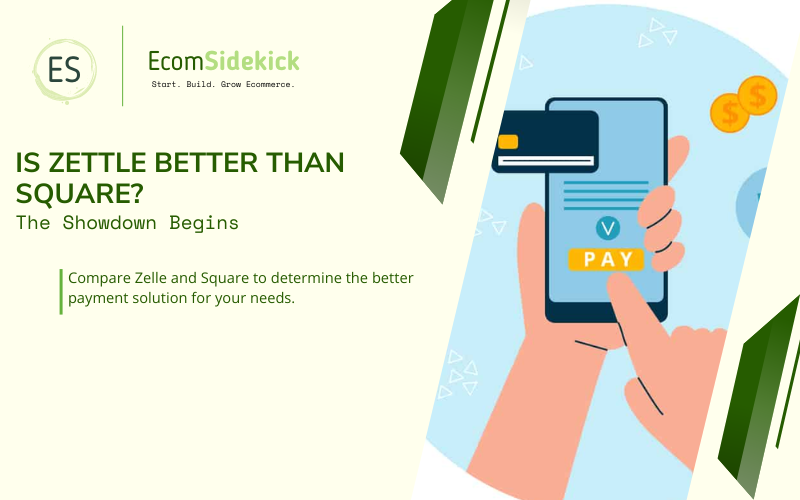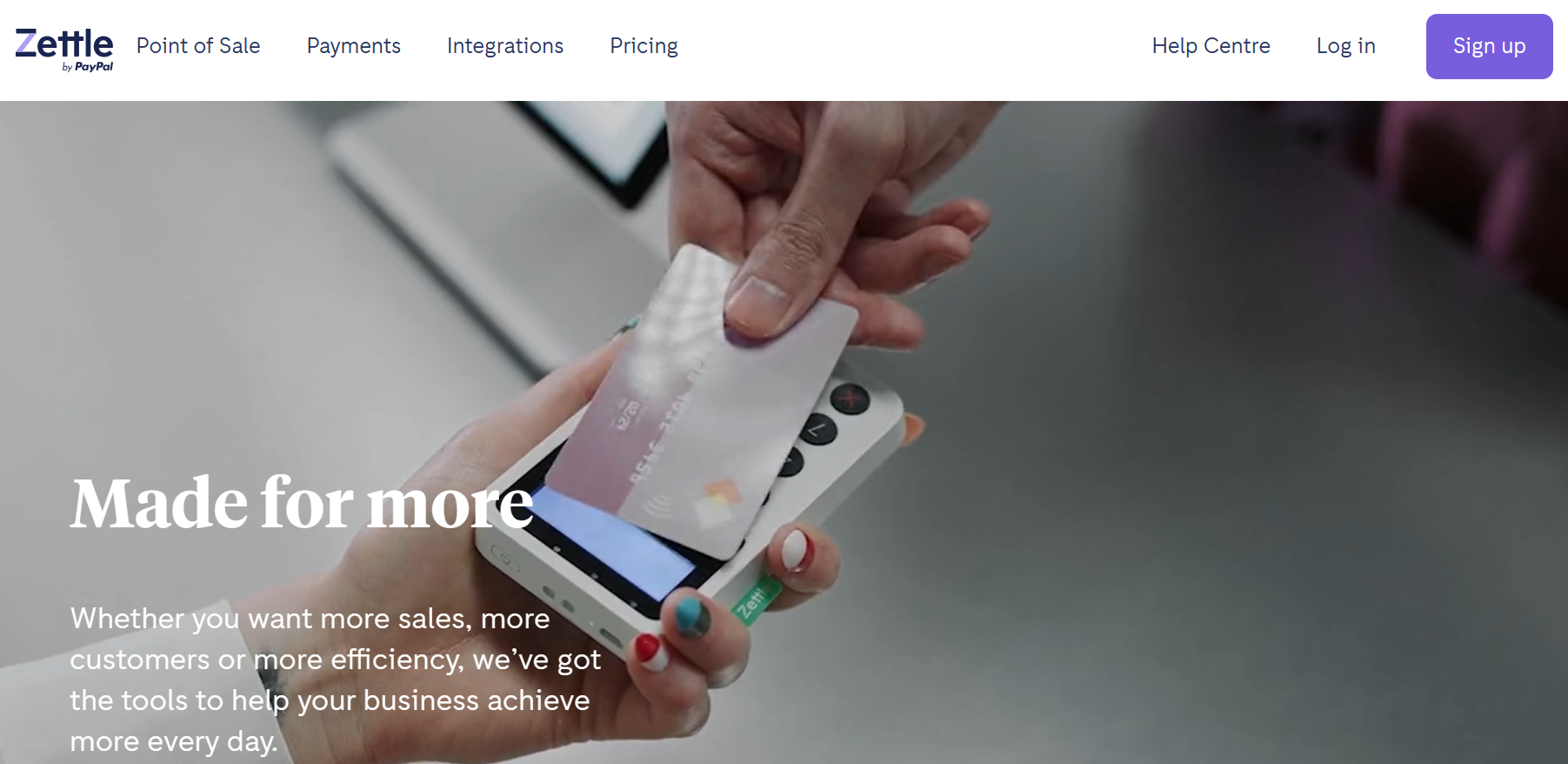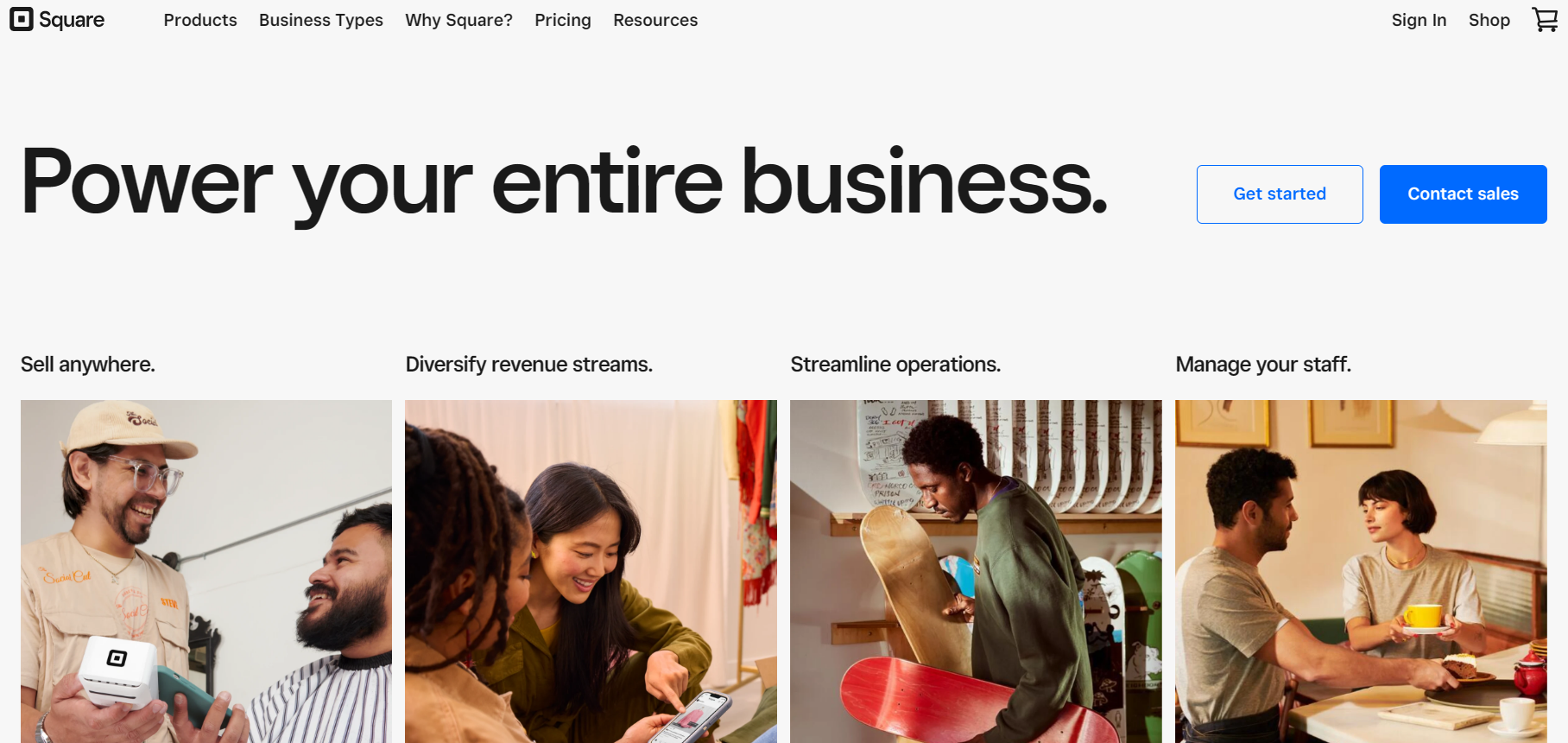Choosing the best payment system for your online business can be a challenge; there are a host of providers available, each of which claims to offer the very best in terms of security and ease of use.
Two of the most popular options on the market, Zettle, and Square, are often compared, and both have their own strengths and weaknesses. But is Zettle better than Square? Or are you better off with a tried and tested option?

To help you make your mind up, we compared these two payment options and put together all you need to know to make the best decision for your business.
What Is Zettle?
Zettle started life as PayPal Here and is a top-rated POS system that allows users to accept payments from customers using any credit or debit card.
The service offers free apps for iOS and Android devices, and also has an app for Windows Phone 8.1. It’s easy to set up, and it’s compatible with many different types of equipment including cash registers, tablets, and smartphones.
The main benefit of Zettle is its ability to integrate seamlessly into existing systems. This means that if you already use a point-of-sale (POS) system, then you don’t need to install anything new – just connect your device to the internet, and you’re ready to go.
You can even add multiple devices at once, so you won’t miss out on sales while one person is away.
The downside is that Zettle does require a Bluetooth connection to work, and this can be tricky to connect depending on your location.
How Does Zettle Work?

As we mentioned, Zettle is a POS system, and it works by connecting directly to your mobile device via Bluetooth. Once connected, you simply scan a QR code displayed on the screen, which will automatically trigger the transaction.
You can also send invoices, manage customer accounts, and view reports. All transactions are secure thanks to 128-bit encryption, and you can even set up alerts to notify you when someone tries to charge too much.
There are no monthly fees, but Zettle does charge a fee of 1.75% for each transaction, and this will apply whether you use a chip and pin, swipe, or contactless. There are, however, no fees or additional charges for international payments or cards, and this is a real bonus for businesses.
Payment links will, however, incur a fee of 2.5% per transaction, and this is extremely high compared to other services.
What Are The Advantages Of Zettle?
Some of the main advantages of Zettle include:
- Allows In Person Payments. One of the main advantages of Zettle is that it allows businesses to take in-person payments, and this would be very useful if your business works in-person, such as in a store or stalls, as well as in an online format.
- Accepts Credit Card And Debit Card Payments. Zettle allows payments to be made using both a credit or debit card, adding extra convenience for both customers and vendors.
- Payments Can Be Made With A Mobile Device. Zettle also allows payments to be made using a smartphone, and this is very convenient and easy to use.
- Can Read QR Codes. Zettle also allows businesses to use QR codes to make payments and complete transactions.
- Integrates Into The Point Of Sale System. Another advantage of Zettle is that you can easily integrate it into your current point-of-sale system, meaning that there’s no need to buy another piece of hardware.
What Is Square?

Square is another well-known POS system that is very popular with small businesses. It boasts a smaller, lighter card reader compared to the bulkier device required by Zettle, and is renowned for the ease with which smartphone payments can be taken – including those with international cards and currencies.
The integration with other systems is a little less sophisticated than Zettle, but it is worth noting that Square does offer its own eCommerce system, complete with online checkout and payment gateway.
How Does Square Work?
Square works similarly to Zettle, in that it allows payments to be taken when a card is swiped. The information from the card is then transferred to the card reader, and in turn, to Square, who passes the information onto the acquiring bank to process the payment.
Like Zettle, in-person payments can be taken with Square, and this is particularly useful if your business operates in both settings.
What Are The Advantages Of Square?
There are a number of advantages to Square, and some of the main ones include:
- Easy To Use. Square is one of the easiest ways to accept payments, and this is because it requires minimal training.
- Mobile Payment Accepted. Square also accepts mobile payments through smartphones, allowing users to pay without having to enter their PIN. This is super convenient and allows you to grab a sale even when customers have left their phone at home.
- No Need For An Internet Connection. Unlike Zettle, Square’s Offline Mode doesn’t require an internet connection to work, so it’s perfect for offline businesses, making it a great choice if you are working in remote locations, or spaces without reliable internet connections.
Does Square Have Any Disadvantages?
Of course, like any other POS system, there are disadvantages to Square too. Some of these include:
- Fees Can Be High. Fees can start to add up quickly for businesses making large transactions, and this is where Square comes unstuck. Fees can range from 2% to 5%, depending on the size of the transaction, and this can become quite expensive over time.
In addition, fees for accepting credit cards on Square tend to be much higher compared to other providers, and this can be a real issue for businesses that take a lot of transactions in this manner.
Zettle |
| |
Square |
|
Is Zettle Better Than Square? Final Thoughts
So, which payment system reigns supreme? In terms of functionality, Square has more features than Zettle, but these tend to be less intuitive. Zettle does, however, offer a simpler user experience, which makes it easier for new users to get started.
Ultimately, the decision will depend on the nature and nuances of your business, and what kind of payments you want to accept. If you are looking for something simple, Zettle may be the best option, while Square offers a bit more flexibility.
Frequently Asked Questions
What Is Zettle, and How Does It Compare to Square?
Zettle and Square are both payment processing companies that offer solutions for small businesses. They provide payment processing services, hardware, and software for accepting card payments.
Which Platform Offers Better Pricing and Fees for Payment Processing?
The pricing and fees for payment processing can vary between Zettle and Square. It’s essential to compare their transaction rates, hardware costs, and any additional fees to determine which is more cost-effective for your business.
How Do Zettle and Square Differ in Terms of Hardware Options for Accepting Payments?
Both Zettle and Square offer a range of hardware options, such as card readers and POS systems. You should compare their features, compatibility with devices, and ease of use to find the best fit for your business.
Which Platform Provides Better Customer Support and Resources for Users?
Customer support and available resources can be crucial for businesses. Research the level of customer support, documentation, and community forums provided by both Zettle and Square to assess their support capabilities.
Are There Any Differences in Payment Processing Speed and Reliability Between Zettle and Square?
Payment processing speed and reliability are essential for businesses. Look for reviews and user feedback to evaluate the performance of both platforms in this regard.
Paul Martinez is the founder of EcomSidekick.com. He is an expert in the areas of finance, real estate, eCommerce, traffic and conversion.
Join him on EcomSidekick.com to learn how to improve your financial life and excel in these areas. Before starting this media site, Paul built from scratch and managed two multi-million dollar companies. One in the real estate sector and one in the eCommerce sector.



